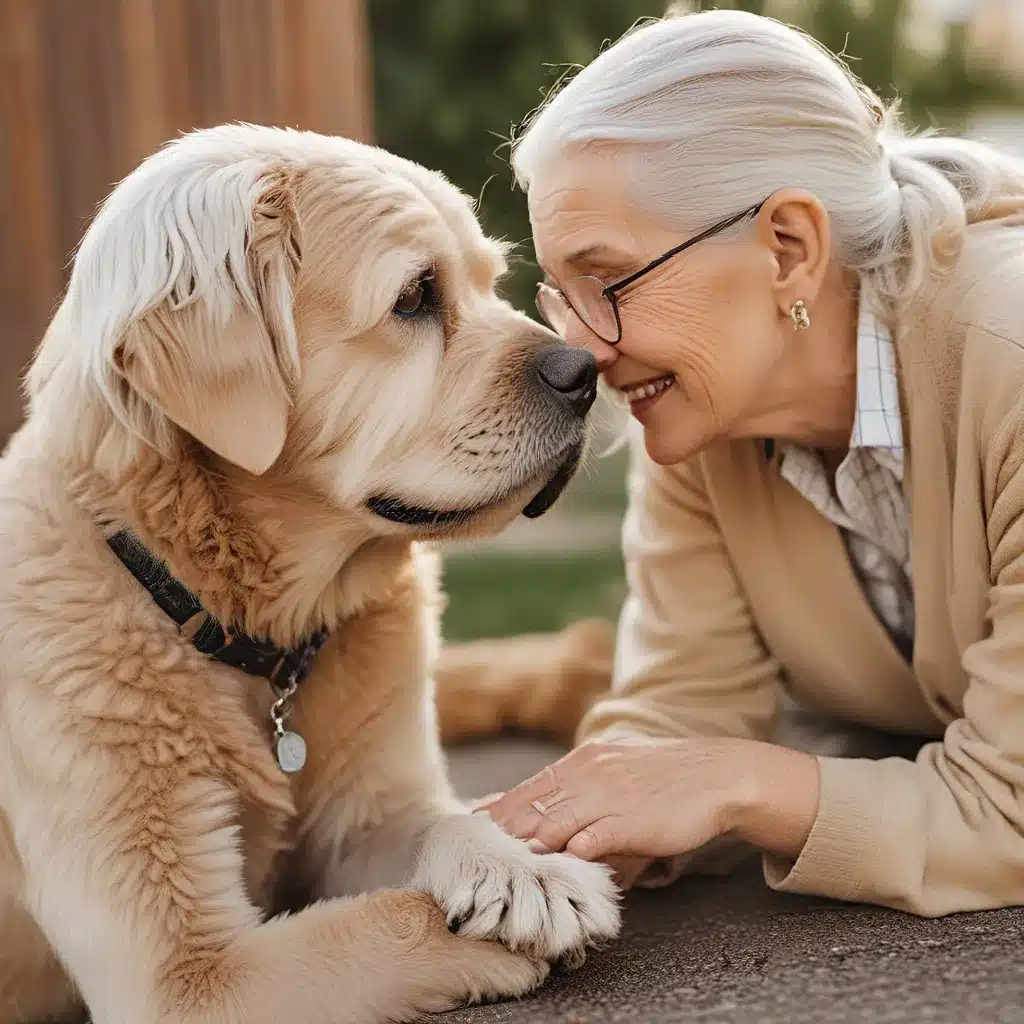
A Lifetime of Love and Loyalty
As we grow older, our perspective on life often shifts. We start to see the world through a more seasoned lens, appreciating the little moments that once seemed insignificant. For many elderly pet owners, this transformation is amplified tenfold. The bond between a senior and their furry companion becomes a tapestry of shared experiences, a testament to the resilience of the human-animal connection.
Navigating the Unique Needs of Elderly Pets
Caring for an aging pet can present a unique set of challenges, but with the right support and preparation, these hurdles can be overcome. One of the most crucial aspects is understanding the changing needs of our senior four-legged friends.
Adjusting to Physical Limitations
As our pets grow older, their bodies may begin to show signs of wear and tear. Arthritis, vision and hearing loss, and decreased mobility can all make everyday tasks more difficult. Ensuring a comfortable living environment with easy access to food, water, and litter boxes can make a world of difference. Investing in orthopedic bedding, ramps, and other assistive devices can help our elderly pets maintain their independence and quality of life.
Managing Medical Concerns
Along with physical changes, our senior pets may also face an array of medical issues. Regular veterinary check-ups are essential to identify and address any underlying conditions early on. From managing chronic diseases like diabetes or kidney disease to providing pain relief for arthritis, collaborating with a trusted veterinarian is key to keeping our elderly companions healthy and happy.
Adjusting Routines and Expectations
As our pets age, their energy levels and activity requirements may change. Adapting our daily routines to accommodate their needs, such as shorter but more frequent walks, can help minimize stress and discomfort. It’s also important to have realistic expectations and celebrate the small victories, rather than pushing our seniors beyond their capabilities.
The Joys and Challenges of Elderly Pet Ownership
Caring for an elderly pet can be a profoundly rewarding experience, but it’s not without its challenges. From navigating the emotional rollercoaster to finding the right support system, the journey can be both heartwarming and heart-wrenching.
Embracing the Golden Years
One of the greatest joys of elderly pet ownership is witnessing the wisdom and grace that comes with age. Our senior companions have a lifetime of memories and experiences to share, and their calm demeanors can be a soothing balm for the soul. Cherishing each moment and finding ways to engage them in activities they still enjoy can create a deeply fulfilling bond.
Navigating Emotional Challenges
As our beloved pets approach the end of their lives, the emotional toll can be overwhelming. Anticipatory grief, the fear of loss, and the uncertainty of the future can all weigh heavily on our hearts. Seeking support from pet loss hotlines, support groups, or even professional counseling can help us navigate these turbulent waters with a little more grace.
Building a Support Network
Caring for an elderly pet can be physically and emotionally draining, so it’s crucial to have a strong support system in place. Reaching out to family, friends, or pet-focused organizations can provide the respite and assistance we need to ensure our senior companions receive the best possible care. Sharing our experiences and learning from others who have walked this path can also be a source of comfort and inspiration.
Pawprints Etched in Our Hearts
Ultimately, the journey of caring for an elderly pet is a testament to the enduring power of love and companionship. The Pet Rescue understands the unique challenges and joys that come with this stage of life, and we are here to support you every step of the way. By embracing the pawprints our senior pets have left on our hearts, we can find the strength and resilience to navigate the bittersweet twilight of their lives with grace and compassion.


